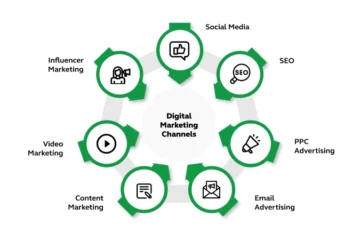To hear her daughter, to watch a video about her life and to listen to her own words, it was hard to believe that a significant majority of Americans hold a negative view of Hillary Clinton, finding her untrustworthy and dishonest.
How could that be true of such a devoted mother, such an exuberant grandmother and such a champion of the underprivileged, with such a big, ready laugh? Do we know her at all? Have we gotten her entirely wrong?
Those were the precise questions that the climactic hours of the Democratic National Convention on Thursday night meant for us to ask.
The party was making history with a female nominee, and it rightly and fully celebrated that, imagining a woman in the American presidency for the first time, after all this time. “When any barrier falls in America,” Clinton said in her speech, “it clears the way for everyone. After all, when there are no ceilings, the sky’s the limit.”
But this particular woman needed to be humanized, softened. In order to touch the sky, she had to reach out as never before. Her story had to be transformed from one of unquenchable ambition to one of boundless heart, and the urgency of the task was underscored by the attention to detail with which she and her campaign team went about it.
That video, shown just before Clinton took the stage, was produced by Shonda Rhimes. It was narrated by Morgan Freeman. He concluded by telling Americans that “this is the woman.”
Then Clinton appeared, to music with these lyrics: “This is my fight song, take-back-my-life song.”
She was taking back her life in order to claim her desired future.
“Sometimes, the people at this podium are new to the national stage,” she said. “As you know, I’m not one of those people.” Then she gave a quick recitation of her resume.
“But my job titles only tell you what I’ve done,” she added. “They don’t tell you why. The truth is, through all these years of public service, the ‘service’ part has always come easier to me than the ‘public’ part. I get it that some people just don’t know what to make of me.”
It was an extraordinary admission for someone who’s been in the public eye for a quarter century. It was also a necessary one. And it spoke to one of the many oddities of this transcendently odd election. Perhaps the most familiar person ever to run for the White House must use the process to introduce herself — or, rather, re-re-reintroduce herself — to voters.
In any other year, with any other matchup, that might be politically fatal. I don’t think it will be for Clinton, and her speech, like much of the convention, showed why. The case against Donald Trump is a damning one, and she and other Democrats know how to make it, presenting him as someone who will threaten our national security and throw our most cherished values in the trash, someone of inadequate preparation and an undetectable soul.
“A man you can bait with a Tweet is not a man we can trust with nuclear weapons,” Clinton said at one point, to a roar from the crowd.
“For the past year,” she later added, “many people made the mistake of laughing off Donald Trump’s comments — excusing him as an entertainer just putting on a show. They thought he couldn’t possibly mean all the horrible things he says, like when he called women ‘pigs.’ Or said that an American judge couldn’t be fair because of his Mexican heritage. Or when he mocks and mimics a reporter with a disability.” She gave additional examples from the seemingly endless list.
“But here’s the sad truth: There is no other Donald Trump,” she concluded. “This is it. And in the end, it comes down to what Donald Trump doesn’t get — America is great, because America is good.”
Her speech wasn’t a memorable one. It was too much of a laundry list, with too little shape and a delivery that was rushed and mechanical at times. But it was full of terrific lines, and the crowd went wild when she acknowledged the milestone of her nomination, saying: “Standing here as my mother’s daughter, and my daughter’s mother, I’m so happy this day has come. I’m happy for grandmothers and little girls and everyone in between.”
Before Thursday night, there was extensive talk about the tough acts she was following, the long shadows cast by Michelle Obama, by Joe Biden and, above all, by Barack Obama, whose remarks on Wednesday night were some of his most exquisite.
But the yardstick for her wasn’t really any of those more polished or accessible orators. Nor was it Trump, whose own big convention speech presented the peculiar vision of an even more peculiar candidate not readily comparable to anyone else.
The yardstick for Clinton was Clinton herself — and her tendency to come across as programmed, guarded, remote. If many Americans look askance at her, it’s not just because Republicans have so persistently encouraged them to. It’s because she can seem so far away, on the opposite side of a moat that she dug herself and has little interest in letting people traverse.
On Thursday night she needed to drop a few of her defenses, step outside of her fortress and assure Americans that her famous capacity for grueling work includes whatever effort is necessary to repair the breach of trust reflected in those unfavorable ratings.
She got only part of the way there, but that distance was crucial and could well be enough. She shared tales — carefully selected, of course — about her grandfather, her father and her mother, who, she recounted, “was abandoned by her parents as a young girl. She ended up on her own at 14, working as a house maid.”
Mothers and daughters and children in general: Clinton and the people who talked about her kept coming back to that, and while the intent was obvious — to communicate that she wasn’t all stiffness and steel — the tactic verged on overkill and was a discouraging confirmation of sexist double standards.
A man doesn’t have to prove first that he’s been a model father to be allowed to ascend to the pinnacle of his career. But apparently a woman has to show that she hasn’t shortchanged motherhood in order to get the green light.
Her conduct as a mother is seen as a window into her character, and she can’t possibly be a warm person unless she’s been a warm parent. That was the context for much of Bill Clinton’s tribute to Hillary and for almost all of Chelsea Clinton’s.
Chelsea introduced Hillary as a grandmother who will drop everything on her way to a speech or a debate and use FaceTime “for a few minutes of blowing kisses and reading ‘Chugga-Chugga Choo-Choo’ with her granddaughter.” She said that Hillary faithfully attended her soccer games and music recitals.
“Thoughtful,” she called her. “Hilarious.”
I’ll be fascinated to see what kind of bounce Hillary gets in the polls. I predict that it will be a big one, not because Americans suddenly see her in a wholly new light but because the Democrats’ gathering here was everything that the Republicans’ in Cleveland was not: coherently choreographed, packed full of emotional highlights, packed even fuller with the party’s most respected leaders, and consistent in its messaging about Trump, which was lethal.
No one who was watching during the early hours Thursday night will soon shake off the words of Khizr Khan, whose son, Humayun Khan, was killed in combat in Iraq in 2004. Humayun was a United States Army captain. He was also a Muslim. He died for his country, in an act of altruism and bravery, and his father summoned that memory as he said: “Hillary Clinton was right when she called my son ‘the best of America.’ If it was up to Donald Trump, he would never have been in America.”
He looked toward the cameras and addressed Trump directly: “Let me ask you, have you even read the United States constitution? I will gladly lend you my copy.” He held it in its hand.
That’s the kind of question and gesture that should doom Trump and likely will. Warm or cold, accessible or aloof, Clinton is smart enough to take advantage of that.
“Our country’s motto is ‘e pluribus unum’ — out of many, we are one,” she said on Thursday night, in a speech whose importance to her, and to the country, cannot be overstated. “Will we stay true to that motto?”
[Source:- New Yourk Times]


